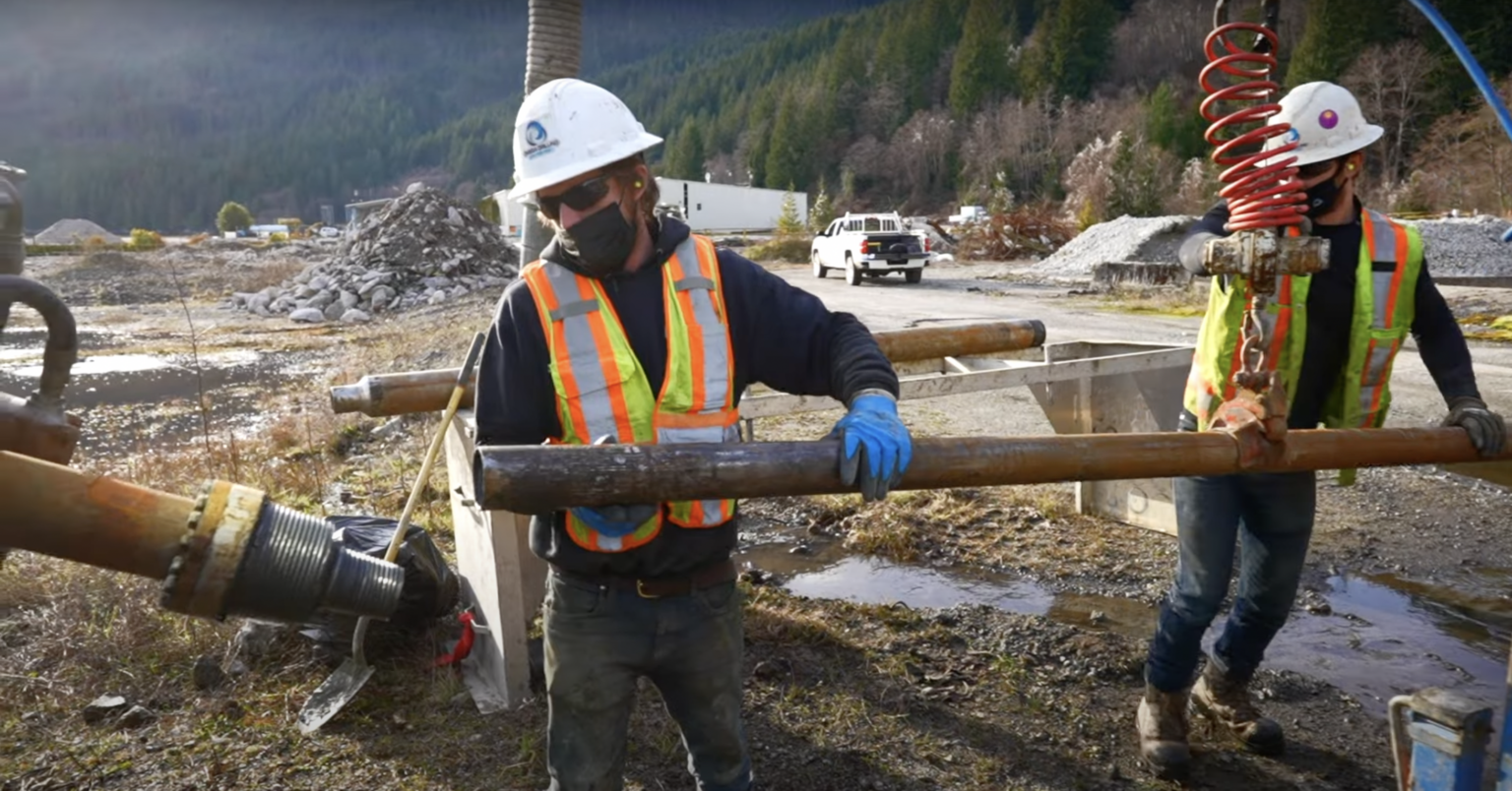Maintaining and improving global energy security; empowering Indigenous communities; seizing the global LNG opportunity — these were some of the talking points speakers were keen to discuss throughout the Canada Gas Exhibition & Conference, which took place in Vancouver in May.
But discussions of natural gas’ negative aspects — namely excessive, typically underreported methane emissions that are considerably worse for the climate than carbon emissions — did not take place. Rather, industry leaders routinely spoke of liquified natural gas (LNG) as a solution to climate change.
Roger Dall’Antonia, president and CEO of FortisBC, spoke of renewable LNG and “low carbon” gases that would “lead the energy transition.”
“Our vision is to lead the transition towards a lower carbon energy future for all British Columbians,” said Dell’Antonio in his opening address to the conference. “We are doing this by increasing our supply of renewable carbon gases to decarbonize the gas system, as well as investing in energy efficient programs and low carbon transportation.”
Renewable carbon gases is a euphemism for biomass and hydrogen, among others. While hydrogen derived solely from electrolysis may be close to carbon neutral, FortisBC is primarily a supplier of natural gas. And while gas can be used as a feedstock and energy source for hydrogen production, it is neither renewable nor low carbon. As for biomass, though it enjoys an unearned reputation for being a low carbon, renewable alternative, it too releases greenhouse gases and air pollution.
And while Dall’Antonia acknowledged a “changing energy landscape” where customers, governments, and regulators are demanding action on climate change, he argued that energy demand has increased in recent years, and that natural gas would meet that demand as a reliable energy source.
However, Dall’Antonia seemed oblivious to the relationship between increased production of fossil fuels — including natural gas — and their effect on climate change.
“Here in BC we’ve reached new energy demands on both our gas and electricity systems driven by population and economic growth, but also extreme weather, from the polar vortex to the heat dome. In recent years, we’ve seen very cold winter weather, and very warm summer weather.”
The increase in both the quantity and quality of extreme weather events is a direct consequence of climate change. And natural gas — such as that produced by FortisBC — is a particularly destructive fossil fuel. While carbon emissions from natural gas production are lower than coal or oil, they are still far higher than renewable energy sources, like wind and solar power. More importantly, substantial methane leaks from every step of the production process make natural gas potentially worse than burning coal for energy. This is because methane is a potent greenhouse gas, which, over a 20 year period, can be up to 80 times more potent than carbon dioxide in terms of climate change. In Canada, methane leaks are underreported and generally unacknowledged. Globally, methane emissions are a major contributing factor in climate change.
The climate crisis’ impact on British Columbia in recent years has been particularly devastating. According to the International Institute for Sustainable Development, BC has become the epicenter of climate-change related disasters in Canada, adding up to $17 billion CAD per annum in costs related to heat waves, floods, and wildfires. BC has had “historic” wildfire seasons in 2021, 2022, and 2023.
Despite this, Dall’Antonia highlighted natural gas as a “safe, reliable, and affordable” energy source, and further argued that the ideal solution to increased extreme weather is more resilient energy systems. Dall’Antonia argued this was best accomplished by developing natural gas infrastructure along with electricity generation.
Though the gas industry has long claimed natural gas is a low-carbon intensity “bridge fuel” that supplies sufficient steady energy it can effectively displace coal use. In the Canadian context, this argument is often made in support of expanding LNG export facilities in British Columbia, in the hopes Canadian gas could be sold to what is often described as a coal-dependent Asian energy market.
A recent report commissioned by the David Suzuki Foundation undermines these arguments on several points. Among others, the report argued that, whatever greenhouse gas emissions might be displaced by increased Canadian LNG exports, these are insufficient to be part of any energy transition in line with Paris Agreement targets. The Suzuki Foundation’s conclusions are unequivocal: exporting British Columbia’s LNG would worsen the climate crisis. Moreover, technological improvements to solar panels, wind turbines, and battery storage have made renewable energy systems more reliable and cost competitive. The Suzuki Foundation report concluded that there is no credible argument to be made for continued gas development in Canada, and no evidence to support industry claims gas — in any form — is any kind of climate-change mitigating bridge fuel.
The findings of the Suzuki Foundation report have been confirmed by other recent studies into the potential impacts of expanded LNG production and export.
A January 2024 report from the Natural Resources Defense Council (NRDC) called industry claims that American LNG exports would displace coal consumption on a global level both a “false narrative” and a “spurious claim.” The NRDC further determined that recent increases in demand for American LNG exports are principally coming from Europe, where coal consumption is already low and declining. Asian demand — often touted as likely to increase in the near term — has actually declined since 2021.
In addition, new research from University College London and the International Institute for Sustainable Development (IISD) undermines industry claims that future energy demand will require more fossil fuel production. If industry and political leaders maintain their commitment to limiting global warming to 1.5 degrees Celsius above pre-industrial levels, the study concluded existing fossil fuel capacity is sufficient to meet future demand.
Moreover, a new study issued by the IISD not only confirms the findings of other studies and reports mentioned in this article, it further indicates that, if current Canadian LNG projects are completed and come online at the end of this decade, global LNG production will have likely already outpaced demand. The IISD believes that this situation will make it impossible for Canadian LNG to compete on the global marketplace without considerable, additional, public subsidies.
Though there is already a strong environmental case against expansion of Canada’s LNG export capacity, ultimately, it will likely be economic and political factors that make LNG development untenable.
Subscribe to our newsletter
Stay up to date with DeSmog news and alerts







